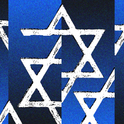A couple of years ago I asked Ammar al-Hakim whether his father was still chain-smoking those pungent Iranian-made Bahman cigarettes. "No, we got him smoking Kingston now," he said with some relief. The elder al-Hakim, Abdel-Aziz, 57, head of the newly renamed Supreme Council of Iraq (which dropped the ominously sounding "Islamic Revolution" from its title a few weeks ago) and leader of the United Iraqi Alliance, Iraq's Shia parliamentary bloc, has just been diagnosed with terminal lung cancer. Baghdad is abuzz with news and rumours of succession and political confusion.
Abdel-Aziz Hakim used to serve as his elder brother Muhammad Baqr's political manager, and was never envisioned as the headline act of Iraq's leading Shia clerical and political dynasty. But in August 2003, Baqr was torn to shreds by an al Qaeda car bomb allegedly delivered by Abu Musaab Al-Zarqawi's father-in-law, and Abdel-Aziz was next in line. In contrast to his brother, Abdel-Aziz was grim, inarticulate and shadowed by claims of having played a blood-soaked role during his youth as a commander of the Badr Corps, the Supreme Council's Iranian-funded paramilitary force. The brothers' father, Grand Ayatollah Muhsin Hakim, was the paramount global Shia figure of the 1960s—the Sistani of his time. The Hakim family could lay claim to having suffered a particularly harsh fate under the Baathists. Some 60 members were murdered, among them Mahdi Hakim, the ayatollah's eldest son, who was gunned down by Saddam's death squads in Sudan in 1988. Another Hakim, Muhammad Said, is widely acknowledged as Sistani's close second in the Shia religious hierarchy.
After the fall of Saddam, Hakim-watchers began paying attention to a new star: Ammar. He was young, affable and modest, and spoke with a moderate tone that seemed suited to the new democratic Iraq. Ammar was tasked with running the Supreme Council's charity arm, the Shahid al-Mihrab Foundation for Islamic Proselytisation, established with Iranian money to mirror another piece of Iran's network of foreign welfare patronage—Hizbullah, in Lebanon. Ammar also established his party's media flagship, Al-Furat Satellite TV, which is housed in a building larger and better equipped than Iraq's state television station. And he was his father's envoy on a Washington charm campaign in August 2005, with the message that the Arab Shia were America's natural allies in facing down Sunni fundamentalism in the middle east.
But as Ammar began registering on political radar screens, the knives came out—wielded by Shia rivals of the Hakim family, such as the Sadr dynasty (even though Ammar's mother is a Sadr), as well as panicked Sunni power centres. Ammar's enemies aim to taint him as an incarnation of Uday Hussein, Saddam's thuggish son. Documents bearing Ammar's signature—which to my eyes look forged—have been circulated purporting to show illegal land appropriations and shady oil sales. The culmination of the campaign came in February, when American soldiers detained and roughed up Ammar on suspicion of aiding terrorism as he crossed the border from Iran, only to release him 11 hours later.
Sources tell me that Abdel-Aziz secured his son's succession to the Supreme Council leadership at a closed meeting of the party's senior figures in June. But Ammar, who is not an MP, cannot fill his father's role as leader of the parliamentary bloc, leaving Abdel-Aziz to look for a weak contender who won't challenge the orchestrated succession.
Another succession in peril
The elderly head of the Sunnis' Consensus parliamentary bloc, Adnan Duleimi, would also like to secure a political future for his progeny—including that of his daughter, a parliamentarian on his slate. But Duleimi cannot claim the political cachet of the Hakims. He is not one of the tribal sheikhs of the Duleim clans, and in 1971 he was fired for drunkenness from his job as an Arabic grammar instructor at Baghdad University. He spent the rest of his days under Saddam as an expert on Iraqi folk music, breeding prize pigeons in the Baghdad neighbourhood of Adhamiya. After the fall of Saddam, Duleimi was one of the first Sunnis to hop on board the political process, landing the position of general director of the Sunni Religious Endowment. In the Sunnis' ongoing vacuum of leadership, Duleimi floated to the top and found himself head of the Sunni slate in the last elections.
Meanwhile, his second eldest son, Hajji Munqith, a physician, is under investigation for a number of terror-related crimes in Baghdad's Sunni-majority Adel and Jami'a neighbourhoods, including the murder of the two sons of Mithal Alusi, another Sunni parliamentarian. Munqith was detained by the Iraqi police at Baghdad airport last January as he tried to board a Brussels-bound flight as part of his father's official delegation. He was to be served with an arrest warrant for terrorism crimes unrelated to the Alusi case. But political pressure, including a Sunni threat to withdraw from the coalition government, got him on to the plane. He's been in hiding in Syria ever since.












